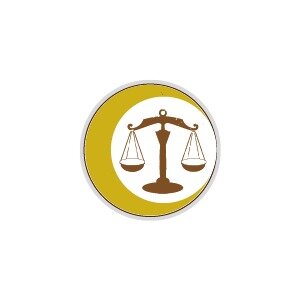Best Public-Private Partnerships (PPP) Lawyers in Kumasi
Share your needs with us, get contacted by law firms.
Free. Takes 2 min.
List of the best lawyers in Kumasi, Ghana
About Public-Private Partnerships (PPP) Law in Kumasi, Ghana
Public-Private Partnerships, commonly known as PPPs, are collaborative agreements between government entities and private sector companies to finance, construct, and operate projects that serve the public interest. In Kumasi, Ghana, PPPs are becoming increasingly important for infrastructure development, urban renewal projects, public utilities, transport systems, and healthcare facilities. The government leverages the expertise and funds of private partners while maintaining public oversight, aiming to deliver efficient and sustainable public services.
Why You May Need a Lawyer
Legal guidance is vital for anyone considering or involved in PPP projects in Kumasi. Here are some common situations where a lawyer can help:
- Negotiating PPP contracts, ensuring fair terms and mutual responsibilities
- Preparing documents and ensuring all legal and regulatory requirements are met
- Advising on risk allocation and financial arrangements within partnerships
- Assisting with due diligence and compliance reviews to satisfy government or private sector criteria
- Resolving disputes between public authorities and private partners
- Facilitating project approvals, permits, and licensing
- Advising on land rights, acquisition, and compensation processes
- Helping foreign investors understand local requirements and systems
Local Laws Overview
PPP arrangements in Kumasi are primarily regulated under Ghana’s national Public Private Partnership Policy and the Public Procurement Act, which detail the processes for initiating, structuring, and executing PPP agreements. Some key legal aspects relevant to Kumasi include:
- Pursuing projects that align with national and local government development plans
- Ensuring competitive bidding and transparent selection of private partners, guided by the Public Procurement Authority
- Stipulating project appraisal standards, including cost-benefit analysis and public value assessment
- Defining revenue generation and risk-sharing structures, including government guarantees and payment mechanisms
- Requiring fair dispute resolution mechanisms, most often through arbitration or the courts
- Confirming environmental and social impact assessments for large-scale infrastructure or utility projects
- Incorporating local authority oversight, especially for projects within the Kumasi Metropolitan Assembly’s jurisdiction
Frequently Asked Questions
What is a PPP in the context of Kumasi?
A PPP in Kumasi is a formal arrangement where a private company partners with a public authority, such as the city assembly or a state agency, to fund, build, or manage a public service or infrastructure project.
Who oversees PPP projects in Kumasi?
PPP projects are overseen by the relevant government ministry, the Public Procurement Authority, and the local metropolitan assembly, with guidance from the National Policy on PPPs.
What types of projects can be developed under PPP in Kumasi?
Projects include roads, bridges, markets, hospitals, schools, housing, waste management, and energy facilities, among others.
Is it necessary to have legal representation for PPP agreements?
It is highly recommended to have a lawyer involved to help navigate complex legal, regulatory, and contractual matters in PPP projects.
How are PPP agreements awarded in Kumasi?
They are usually awarded through a competitive bidding process in line with the Public Procurement Act to ensure fairness and transparency.
How are disputes handled in PPP projects?
Most PPP contracts include provisions for resolving disputes, commonly through arbitration or legal action in Ghanaian courts.
What laws impact land acquisition for PPP projects in Kumasi?
Land acquisitions are governed by the Land Act and other sector-specific regulations, which set out compensation and community engagement requirements.
Can foreign companies participate in PPPs in Kumasi?
Yes, foreign companies can participate in PPP projects, often through joint ventures with local entities and subject to Ghanaian investment and procurement laws.
What due diligence is required for PPPs?
Due diligence includes financial analysis, legal compliance checks, risk assessment, and often environmental and social impact evaluations.
How does government support private investors in PPPs?
The government may offer guarantees, regulatory support, access to land, and facilitate permission and licensing processes.
Additional Resources
If you need further information or support regarding PPPs in Kumasi, consider reaching out to these resources:
- Ministry of Finance Public-Private Partnership Office
- Public Procurement Authority (PPA) of Ghana
- Kumasi Metropolitan Assembly (KMA) PPP Desk
- Ghana Investment Promotion Centre (GIPC)
- Legal Aid Commission of Ghana (for general legal advice)
- Local law firms with experience in infrastructure or commercial law
Next Steps
If you are considering engaging in a PPP project in Kumasi or need legal advice, take the following steps:
- Define your project goals, expected outcomes, and potential partners
- Gather all relevant project documents and background information
- Identify a lawyer or law firm with expertise in PPP law and Ghanaian business regulations
- Schedule a consultation to understand your legal rights, obligations, and the local PPP process
- Engage your lawyer early in the planning process to avoid common legal pitfalls
- Stay informed of ongoing policy changes by consulting relevant government offices and professional advisors
By securing proper legal advice at the outset, you can better protect your interests and ensure the success of your public-private partnership project in Kumasi.
Lawzana helps you find the best lawyers and law firms in Kumasi through a curated and pre-screened list of qualified legal professionals. Our platform offers rankings and detailed profiles of attorneys and law firms, allowing you to compare based on practice areas, including Public-Private Partnerships (PPP), experience, and client feedback.
Each profile includes a description of the firm's areas of practice, client reviews, team members and partners, year of establishment, spoken languages, office locations, contact information, social media presence, and any published articles or resources. Most firms on our platform speak English and are experienced in both local and international legal matters.
Get a quote from top-rated law firms in Kumasi, Ghana — quickly, securely, and without unnecessary hassle.
Disclaimer:
The information provided on this page is for general informational purposes only and does not constitute legal advice. While we strive to ensure the accuracy and relevance of the content, legal information may change over time, and interpretations of the law can vary. You should always consult with a qualified legal professional for advice specific to your situation.
We disclaim all liability for actions taken or not taken based on the content of this page. If you believe any information is incorrect or outdated, please contact us, and we will review and update it where appropriate.










